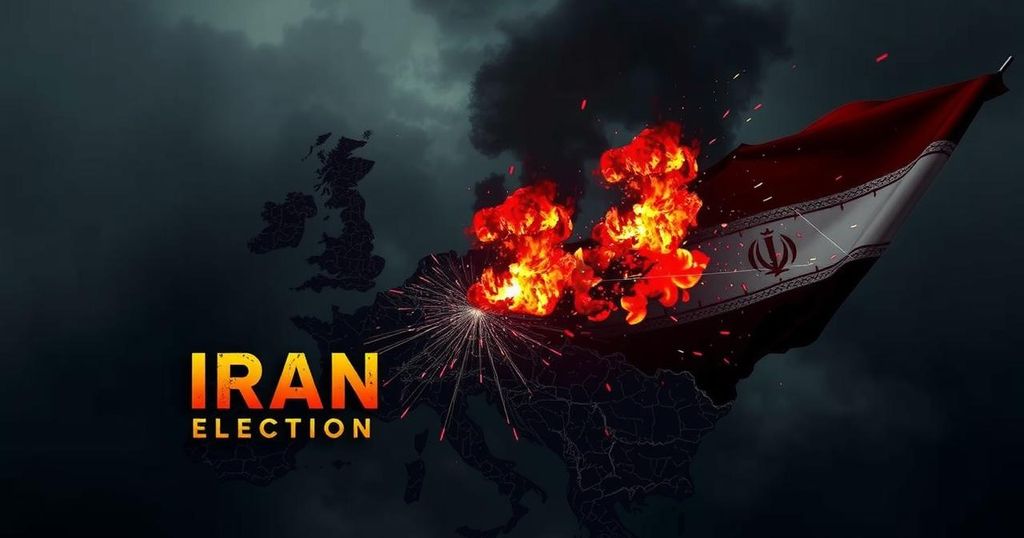Iran has accused the United States and Israel of orchestrating plans behind the recent advances of Syrian opposition groups, specifically Hayat Tahrir al-Sham, in a bid to destabilize Syria. Iranian officials claim that the timing of these efforts, following a ceasefire in Lebanon, illustrates coordinated efforts among hostile entities. Iran aims to rally support against the U.S. presence while reinforcing alliances with Turkey and Russia.
Iran’s recent claims assert that the United States and Israel are directly responsible for the escalating conflict in Syria, particularly in light of advancements made by the Syrian opposition in Idlib province. Following their swift capture of Aleppo, Hayat Tahrir al-Sham (HTS) seemed poised to take Hama, although their progress has since halted. Iranian officials, including Foreign Minister Abbas Araghchi, maintain that the timing of these developments suggests a coordinated effort among the Zionist regime, the United States, and various terrorist factions to destabilize Syria.
During a televised interview, Mr. Araghchi stated, “There is complete coordination between the Zionist regime, the US government, and terrorist groups, and the course of events indicates such coordination because these attacks followed a ceasefire in Lebanon.” This perceived alignment is fueled by the recent ceasefire in Lebanon, which Iran argues created a window for HTS to launch its offensive against the Syrian regime. While HTS’s actions may have been influenced by the recent defeat of Hezbollah, there remains a lack of evidence to support the notion that the U.S. and Israel are supportive of HTS’s advances.
Iran aims to leverage these assertions to gain support from regional allies, specifically Turkey and Russia. Tehran seeks to galvanize a united front against U.S. military presence in Eastern Syria, where American forces are engaged with Kurdish-led Syrian Democratic Forces (SDF) to combat ISIS. Turkish interests align with Iran’s in this context, as Ankara has mobilized Syrian militias to oppose Kurdish groups in response to HTS’s actions.
In discussions with Syrian President Bashar al-Assad, Mr. Araghchi expressed unwavering support for the Syrian government, emphasizing Iran’s commitment to stand alongside Syria as it did during previous conflicts. The Iranian government continues to engage in high-level conversations to resume the Astana process, involving key discussions with Russian and Turkish officials to solidify a collaborative approach toward the Syrian crisis.
The ongoing conflict in Syria has prompted various nations to align their interests, often leading to allegations of conspiracy among state actors. Iran, a key supporter of the Syrian government, perceives threats from opposition groups, particularly in light of the recent advances by HTS in strategically important areas. The complex geopolitical landscape includes the interests of multiple players, including Turkey, the United States, and Israel, all of whom influence the conflict in Syria. Iran’s need to frame these dynamics as conspiratorial reflects its desire to assert its influence and rally support from its allies in the face of opposing forces in the region.
In summary, Iran’s claims regarding U.S. and Israeli involvement in the escalation of the Syrian conflict stem from significant military movements by opposition forces, which Tehran interprets as coordinated attacks on the Syrian regime. Through these assertions, Iran seeks to justify its involvement while garnering support from regional allies, emphasizing its role as a stabilizing force within the turbulent landscape of Middle Eastern geopolitics. Ultimately, the narratives crafted by Iran serve to reinforce its positions while attempting to shift the focus away from internal challenges.
Original Source: www.jpost.com







